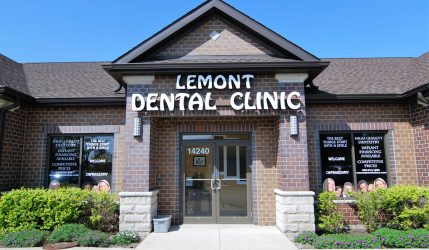When seeking the best dental implants in my area, it’s crucial to find a provider that guarantees quality, transparency, and cutting-edge treatment. For anyone experiencing tooth loss, dental implants offer a robust and aesthetically pleasing solution. They are designed to mimic natural teeth, providing both security and a return to normal oral function. With their high success rates and ability to prevent further oral health issues, dental implants are often the preferred choice for tooth replacement.
- Benefits: Natural appearance, long-lasting solution, prevents bone loss
- Considerations: Cost, bone health, choosing the right clinic
The right clinic for your dental implant journey will guide you through a seamless oral surgery process, ensuring comfort and success at every stage. With advancements in dental technology, implants can truly transform smiles and lives.
I’m Piotr Dederowski, dedicated to delivering the best dental implants in my area by offering comfort and high-quality care. My experience in both general and restorative dentistry helps in guiding patients through implant procedures with ease and professionalism. Let’s explore how the next steps can significantly improve your oral health.

Quick best dental implants in my area definitions:
– dental implants health benefits
– cheap dental implants near me prices
– dental implants near me prices
Understanding Dental Implants
Dental implants are a modern solution for tooth replacement. They are designed to replicate the function and appearance of natural teeth. Let’s break down the main components and materials used in dental implants to understand why they are so effective.
Implant Components
A dental implant typically consists of three main parts:
-
Threaded Screw (Implant Post): This is the foundation of the implant. It is surgically inserted into the jawbone and acts like a tooth root. Most of these screws are made from titanium, a material known for its strength and biocompatibility.
-
Connector (Abutment): This piece connects the implant post to the restoration. It ensures the artificial tooth is firmly secured.
-
Implant Restoration: This is the visible part of the implant, like a crown or bridge. It is custom-made to match the color and shape of your natural teeth.
Materials: Titanium and Zirconia
Titanium is the most commonly used material for dental implants. It’s incredibly strong and integrates well with bone, a process known as osseointegration. This ensures the implant remains stable and durable over time.

For those who prefer a metal-free option, zirconia implants are available. Zirconia is a ceramic material that is also biocompatible and offers a natural tooth-like appearance. It’s a great option for patients with metal sensitivities or allergies.
Why Choose Dental Implants?
Dental implants are a preferred choice for many because they:
- Provide a permanent solution to missing teeth.
- Preserve jawbone health by stimulating it, preventing bone loss.
- Do not rely on neighboring teeth for support, unlike traditional bridges.
Choosing the right material and understanding the components involved can help ensure the success of your dental implant treatment. Whether you opt for titanium or zirconia, the goal is to restore function and aesthetics to your smile.
In the next section, we’ll dig into how to find the best dental implants in my area and what factors contribute to their success.
Best Dental Implants in My Area
Finding the best dental implants in my area involves understanding what makes an implant successful and which options are available. Let’s explore these aspects to help you make an informed decision.
Dental Implant Success
Dental implant success is largely determined by the process of osseointegration, where the implant fuses with the jawbone. This is crucial because it provides a stable and durable foundation for the artificial tooth. Success rates for implants are generally high, often exceeding 95% for healthy individuals.
Key factors that contribute to this success include:
-
Quality of Materials: Titanium is renowned for its ability to integrate with bone, making it the most popular choice for implants. Zirconia is another excellent option for those seeking a metal-free alternative.
-
Experienced Professionals: Having your implants placed by a skilled oral surgeon or implant dentist increases the likelihood of a successful outcome. These professionals are trained to handle complex cases and use advanced techniques to ensure optimal results.
Endosteal Implants
Endosteal implants are the most common type of dental implant. They are surgically placed into the jawbone and serve as the root for the replacement tooth. Their popularity stems from their versatility and high success rate.
-
Design: Typically shaped like small screws, endosteal implants are made from titanium and are known for their strength and durability.
-
Applications: They can support single crowns, bridges, or even full dentures, making them suitable for various dental restoration needs.
Implant Brands
Choosing a reputable implant brand can also influence the success of your treatment. Some well-known brands in the industry offer high-quality components and have a track record of successful outcomes.
-
Advanced Technology: Leading brands often use cutting-edge technology to design implants that mimic the natural tooth structure closely.
-
Proven Track Record: Brands with a history of successful implantations provide added assurance of quality and reliability.
By considering these factors, you can find the best dental implants in my area custom to your needs. Whether it’s the type of implant, the materials used, or the expertise of the dental professional, each element plays a vital role in the overall success of your dental restoration journey.
Next, we’ll look at the factors that influence the cost of dental implants, including insurance coverage and additional procedures like bone grafting.
Factors Influencing Implant Costs
When considering dental implants, understanding the cost factors can help you plan better. Let’s dig into the elements that can influence the price of implants.
Implant Pricing
The price of dental implants can vary significantly based on several factors. It’s not just about the implant itself; other procedures and materials add to the cost.
-
Materials and Components: High-quality materials like titanium or zirconia often come with a higher price tag but offer better durability and success rates.
-
Procedures Involved: The complexity of the surgery, such as the need for extractions or bone grafting, can increase the overall cost.
-
Location and Expertise: Prices can vary based on your location and the expertise of the dental professional performing the procedure.
Insurance Coverage
Insurance can play a crucial role in managing the costs of dental implants. However, coverage varies widely between providers and plans.
-
Restorative vs. Cosmetic: Some insurers classify implants as restorative, which might be covered, while others see them as cosmetic, which often isn’t. It’s essential to check with your provider.
-
Partial Coverage: Even if implants are covered, insurance often only pays part of the cost, leaving you responsible for the remainder.
-
Increasing Coverage Trends: Thankfully, more insurance providers are recognizing the oral health benefits of implants and are starting to offer coverage.
Bone Grafting
Bone grafting is sometimes necessary to provide a solid foundation for the implant. This procedure can add to the overall cost but is vital for implant success.
-
When Needed: Bone grafting is typically required when there isn’t enough natural bone to support the implant.
-
Impact on Cost: This additional procedure can increase both the time and cost of the implant process, but it’s crucial for ensuring long-term success.
Understanding these factors can help you plan financially for dental implants. The investment in quality materials, skilled professionals, and necessary procedures like bone grafting ensures a successful and lasting outcome.
Next, we’ll explore how to prepare for dental implant surgery, including oral health assessments and treatment planning.
Preparing for Dental Implant Surgery
Getting ready for dental implant surgery involves several important steps. These ensure that the procedure is successful and that you enjoy your new smile for years to come.
Oral Health Assessment
Before you even think about implants, a thorough oral health assessment is crucial. This is the first step in understanding the current state of your dental health.
-
Comprehensive Exam: Your dentist will conduct a detailed examination of your mouth. This includes checking the health of your gums, teeth, and jawbone.
-
Identifying Issues: Any existing dental problems, such as tooth or gum infections, need to be addressed before proceeding with implants. This ensures the best possible outcome.
Diagnostic Tests
Once your oral health is assessed, the next step involves diagnostic tests. These tests provide a deeper look into your dental structure and help in planning the surgery.
-
Cone Beam CT Scan: This advanced imaging technique gives a 3D view of your jawbone and teeth. It helps in determining the exact placement of the implant posts.
-
X-Rays: Standard X-rays can also be used to evaluate bone density and identify any underlying issues that need attention.
Treatment Planning
With all the necessary information from the assessments and tests, a detailed treatment plan is created. This step is crucial for the success of the implant procedure.
-
Customized Plan: Your dentist will design a treatment plan custom to your specific needs. This plan includes the type of implant, the number of implants required, and any additional procedures like bone grafting.
-
Surgical Guide: Using digital technology, a surgical guide or stent is created to ensure precise placement of the implants. This guide is a template that fits over your gums during surgery, helping to replicate the treatment plan accurately.
-
Timeline and Expectations: You’ll be informed about the timeline for the procedure and what to expect during the recovery phase. Knowing this helps you prepare mentally and physically for the surgery.
Preparing for dental implant surgery involves these essential steps to ensure everything goes smoothly. Next, we’ll address some frequently asked questions about dental implants, including who is best to place them and what costs you can expect.
Frequently Asked Questions about Dental Implants
Who is best to place dental implants?
When considering dental implants, it’s important to choose the right professional for the job. Typically, you’ll want to look for either an oral surgeon or an implant dentist. These specialists have the advanced training and experience necessary for successful implant placement.
-
Oral Surgeons: They are trained in all aspects of oral surgery, including complex procedures. Their expertise is invaluable, especially in cases that require bone grafting or dealing with complicated dental anatomy.
-
Implant Dentists: These are general dentists who have undergone additional training in implantology. They can handle straightforward cases and are skilled in both the surgical and restorative phases of implant treatment.
Selecting the right professional is crucial for achieving the best results and ensuring the longevity of your dental implants.
What should a full set of implants cost?
The cost of a full set of dental implants can vary significantly based on several factors:
-
Geographic Location: Prices can differ depending on where you live. Urban areas might have higher costs compared to rural locations.
-
Complexity of the Case: More complex procedures, such as those requiring bone grafting, will increase the overall cost.
-
Implant Materials: The type of materials used for the implant components, such as titanium or zirconia, can affect pricing.
-
Insurance Coverage: Some dental insurance plans may cover part of the cost if they consider implants a restorative procedure rather than cosmetic.
On average, a full set of implants can range from $20,000 to $50,000. While this might seem high, it’s important to consider the long-term benefits and durability that implants provide over other tooth replacement options.
Which type of dental implant has the highest success rate?
Endosteal implants are the most common type of dental implant and have the highest success rate, typically ranging between 95% to 98%. These implants are placed directly into the jawbone and act as a root for the replacement tooth.
-
Success Factors: The success of endosteal implants depends on several factors, including the patient’s oral health, the skill of the surgeon, and proper post-surgery care.
-
Long-Term Durability: With good oral hygiene and regular dental check-ups, endosteal implants can last a lifetime, making them a reliable choice for many patients.
Choosing the right type of implant and ensuring it’s placed by a qualified professional can greatly improve the success and longevity of your dental restoration.
These FAQs address some of the most common concerns when considering dental implants. Up next, we’ll explore the various factors that influence the cost of dental implants, helping you make an informed decision.
Conclusion
At Lemont Dental Clinic & Gentle Touch Dentistry, we pride ourselves on providing high-quality care and ensuring patient satisfaction with every visit. Our team is dedicated to offering the best dental solutions custom to your unique needs, including the highly sought-after dental implants.
We understand that choosing the right place for your dental implants is a big decision. That’s why we focus on delivering comprehensive care using state-of-the-art technology and techniques. Our commitment to excellence ensures that your implant journey is smooth and successful, from initial consultation to final restoration.
Patient satisfaction is at the heart of what we do. We know that a comfortable and supportive environment is essential for a positive dental experience. Our friendly and knowledgeable staff are here to guide you every step of the way, answering any questions and addressing any concerns you might have.
If you’re searching for the best dental implants in my area, look no further. We invite you to find the difference at Lemont Dental Clinic & Gentle Touch Dentistry, where your smile is our priority.
Explore our dental implant services to learn more about how we can help you achieve a healthy, confident smile.






